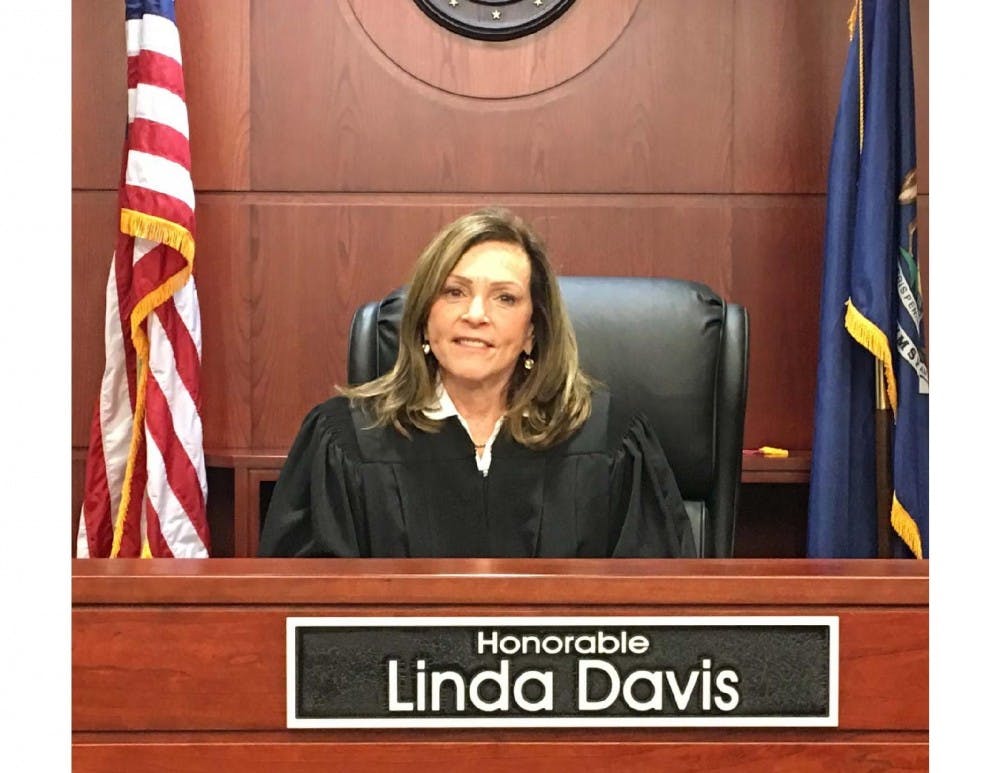Macomb County judge sparks change for the opioid epidemic
Judge Davis was inspired to end the opioid epidemic after her daughter became an addict
Imagine a family member has a knee surgery, and a doctor prescribes an opioid like Vicodin to help ease the pain.
Gradually, their knee begins to heal, but another part of them begins to deteriorate. They’re secretive, they begin to isolate themselves, and without even knowing it, they become an opioid addict.
For people like Linda Davis, a Macomb County drug court judge, this story is a reality.
Twelve years ago, Davis’ daughter came to her, and told her she had an opioid addiction. This was the hardest obstacle Davis ever faced; she said she wouldn’t wish it upon her worst enemy.
“It was the saddest thing I ever went through in my life," Davis said. "Watching your child die, and there’s nowhere to turn, and there’s no one to talk to about (it)… Worrying you’re going to get that call; it’s a horrible way to live."
Davis said the number-one form of addiction comes from prescribed medications like the ones her daughter was given.
Luckily, Davis’ daughter has been sober for nine years. Davis said it is a rare case; most people who get sucked in by the disease either end up dead or in jail.
Davis used the experience as motivation to change a system that was “so clearly broken,” and to start making a difference in Michigan.
“Many times, people who are very passionate about something have an ‘a-ha’ moment, and for (Davis), once she got past being a mom and the worries that came from that, she decided she didn’t want anyone else to have to deal with it the way that she did,” said Louise Connolly, Davis' assistant.
According to the National Institute on Drug Abuse, Michigan has an opioid death rate of 18.5 deaths per 100,000 people, which is higher than the national average of 13.3 deaths.
Davis is fighting this statistic as a Judge by offering addicts with drug charges treatment before jail.
“I don’t think we accomplish a lot by locking up drug addicts," Davis said. "We do a whole lot more in solving the problem and making the community safer if we can get them healthy and well. It’s a waste of tax-payer money to do anything else.”
Davis also co-founded Families Against Narcotics (FAN). This foundation provides a resource for families facing addiction, education for schools around the state and a support system for recovering addicts.
Part of their education program is called “Real People, Real Stories.” The program brings recovering addicts into schools to talk to students.
“We are in over 150 schools at this time where we take young recovering addicts in to talk about these issues, how they got addicted, and how quickly it can happen,” said Davis.
FAN has become a resource for many people affected by addiction.
“For me when our daughter was in the middle of (addiction), we didn’t feel like we had anyone to go to,” said Lori Ziolkowski, Vice President of the Great Lakes Bay region of FAN. “FAN is that one place where everybody affected by it can be in the same room. There’s no judgement, and we all just understand what horrific experience we’re all going through.”
The program Hope Not Handcuffs stemmed from FAN. This is a program where addicts can go to local police stations or fill out a form online to request treatment. Then a trained “angel” will provide support for that addict and help them get into recovery.
Anyone can become an angel, but they must first fill out an application and go through training.
According to the Families Against Narcotics website, the Hope Not Handcuffs program has helped 1,873 people since Feb. 1, 2017.
Davis said that Hope Not Handcuffs not only helps a person get into treatment, but provides a support system as they go through recovery by getting them involved in the community.
“(Hope Not Handcuffs) gives people who feel very hopeless, who have a lot of shame and guilt, a little glimmer of hope that the way they’re currently living isn’t the way they have to continue to live,” said Ziolkowski.
Families Against Narcotics hosts monthly meetings in Mount Pleasant. Support meetings are at 7 p.m., the first Thursday of each month at the Tribal Operations Senior Room. Forums are held at 7 p.m., the third Thursday of the month at the Ziibiwing Cultural Center.
This Thursday, Oct. 18 FAN will host a movie screening and a dinner at the Ziibiwing Cultural Center. Dinner will begin at 6 p.m., followed by a showing of "Stigmatic: Our Opioid Crisis," which was filmed in Bay City.




